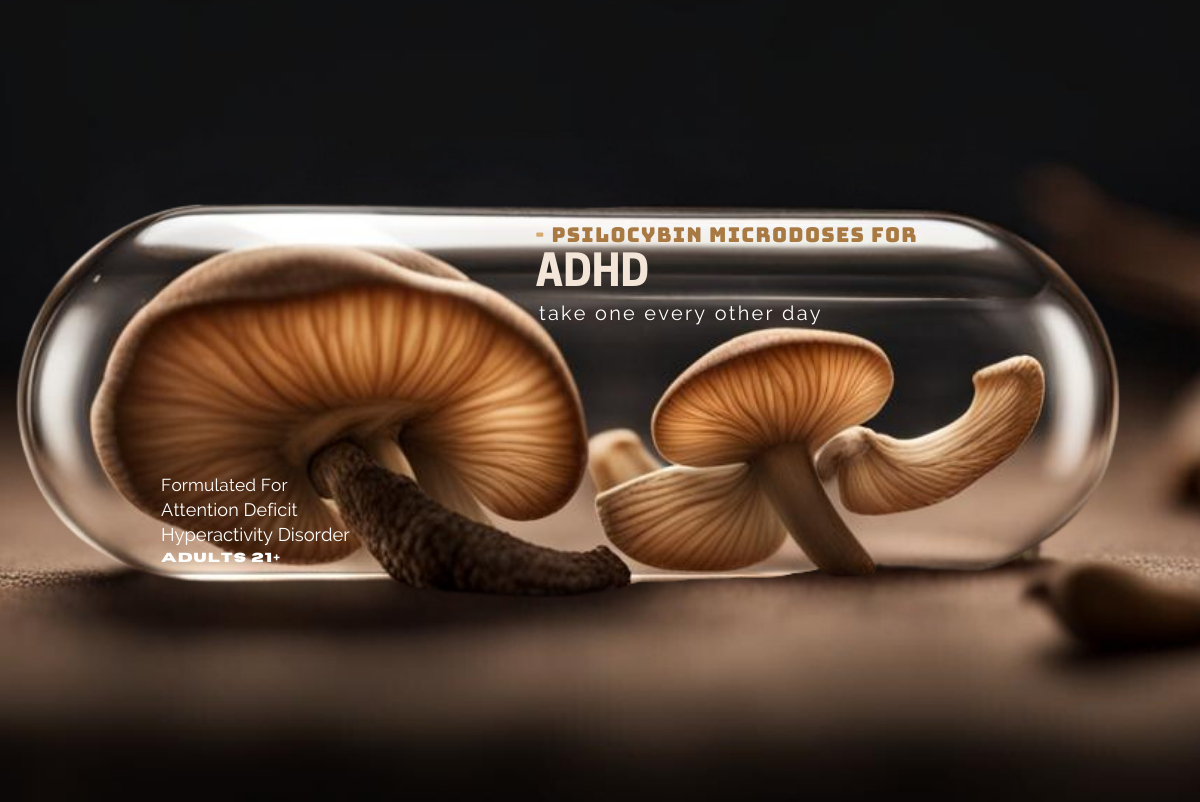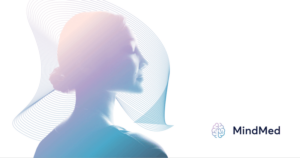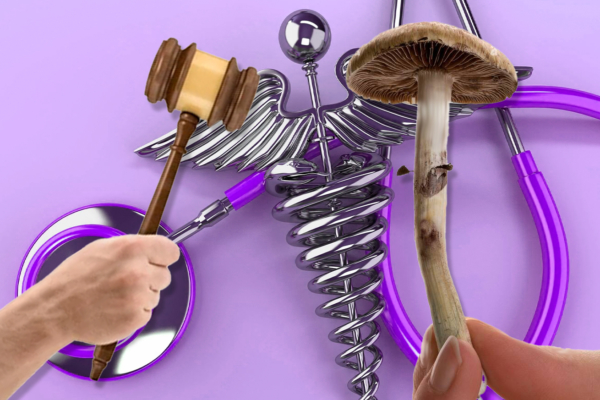
Over the past five years, the practice of microdosing psilocybin mushrooms has ballooned in popularity. High-level executives, moms, and psilonauts continue to report improvements in mental health, creativity, and focus, while clinical trials attempt to validate the purported benefits. However, there’s an ongoing debate on whether MD’s positive mental health outcomes are simply a placebo effect.
Despite the challenges that microdosing is facing, many have turned to this method to alleviate symptoms of ADHD. Now, a new study exploring real-world psychedelic microdosing for ADHD could help reimagine the way we perceive and treat this condition.
Consuming small, sub-hallucinogenic doses seems to improve mindfulness and personality traits in adults with ADHD who struggle in these areas. Improvements hold true even when people combine microdosing with conventional prescription medications. Contextualizing the results signals that a ‘both-and’ approach could offer a holistic ADHD protocol that intertwines psychedelic benefits with pharmaceutical reliability.
Most ADHD patients curb symptoms with pharmaceuticals like Adderall, Ritalin, and Concerta. These medications reduce impulsivity and hyperactivity with impeccable precision.
However, they don’t generally help adults with ADHD tackle challenges in attending to the present moment and being non-judgmental toward their thoughts. People with ADHD also struggle with emotional instability and negativity compared to their neurotypical counterparts. And yet, ADHD medications often exacerbate anxiety and stress.
From the psychedelic perspective, microdosing could give people novel options to manage the full breadth of symptoms with greater ease.

The microdosing study, published in the Frontiers in Psychiatry Journal, drew data from 233 people using an online prospective naturalistic design. Most people had an ADHD diagnosis. The rest reported severe symptoms. About a third used ADHD medication daily.
The survey assessed mindfulness and personality traits at the outset and then at two and four weeks after starting the protocol. Participants reported their experiences using validated measures.
Researchers hypothesized that microdosing would increase “trait mindfulness,” or being aware of and attentive to present-moment thoughts, feelings, and sensations without overreacting. They also thought microdosing would improve conscientiousness, extraversion, agreeableness, and openness while decreasing neuroticism.
Some results aligned with researcher expectations. Others were surprising.
After four weeks, microdosers with ADHD aligned more closely with general population averages. They exhibited more mindfulness, particularly in acting with awareness and non-judging of inner experiences. They also scored lower in neuroticism or emotional instability.
At the two-week time point, participants taking conventional ADHD medication scored lower in mindfulness than the non-medicated cohort—however, four weeks of microdosing balanced the scales with equal improvements regardless of pharmaceutical use.
Additionally, comorbid diagnoses, like depression, anxiety, and PTSD, did not affect the microdosers’ overall progress.
However, contrary to expectations, participant personality traits, like agreeableness and openness, remained largely unchanged, indicating potential ceiling effects.
The lack of change in personality raises questions about microdosing’s ability to make a meaningful impact on ADHD challenges.
However, the results were still significant in several ways. First, they suggest microdosing can induce changes in otherwise stable traits like mindfulness and neuroticism.
Further, the fact that ADHD medication did not influence these changes implies that microdosing might offer distinct therapeutic pathways that could build on the current treatment model.
This discovery could allow for more personalized treatment models–some involving a “both-and” approach, including traditional medications and psychedelics.
The study is a small step in providing the burden of proof that only placebo-controlled research can validate. Nevertheless, it opens new avenues for exploring holistic approaches to managing ADHD. It also clarifies that people have safe, experimental options they may have never considered. And that’s something to celebrate.





